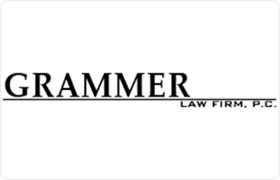Myrtle Beach Felony Lawyer, South Carolina
Sponsored Law Firm
-
 x
x

Click For More Info:
-
Grammer Law Firm, P.C.
1700 Oak St Conway, SC 29526» view mapCriminal Proudly Serving Horry County
You need an attorney with criminal defense knowledge who will vigorously protect your rights and interests.
800-957-8401
Not enough matches for Myrtle Beach Felony lawyer.
Below are all Myrtle Beach Criminal lawyers.
Jeffrey T. Lucas
✓ VERIFIED *Status is reviewed annually. For latest information visit hereAttorney Lucas grew up in the small town of Great Falls in upstate South Carolina. Following high school, he attended Coastal Carolina University (CCU... (more)
David E. Rigney
✓ VERIFIED *Status is reviewed annually. For latest information visit hereIf you have been injured or are disabled, give me a call. If you need legal advice before you sign a contract, enter into a lease, or sign a business... (more)
William E. Hopkins
✓ VERIFIED *Status is reviewed annually. For latest information visit hereBill Hopkins was born and raised in Bishopville, South Carolina. He attended North Carolina State University where he received his B.S. degree in Text... (more)
Dean N. Mureddu
FREE CONSULTATION
CONTACTDaniel Alan Hunnicutt
FREE CONSULTATION
CONTACTWilliam Grammer
FREE CONSULTATION
CONTACTMichael H Wells
FREE CONSULTATION
CONTACT William Grammer Myrtle Beach, SC
William Grammer Myrtle Beach, SC AboutGrammer Law Firm, P.C.
AboutGrammer Law Firm, P.C. Practice AreasExpertise
Practice AreasExpertise


